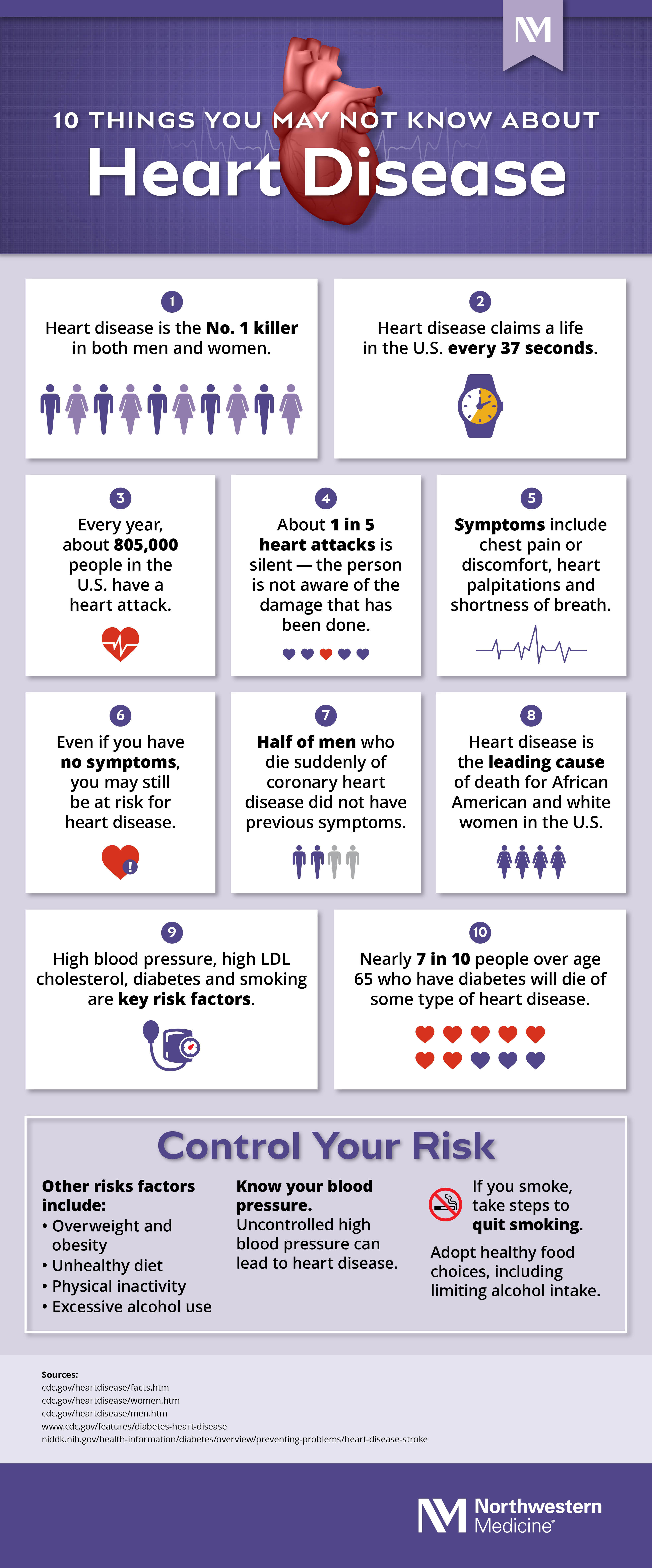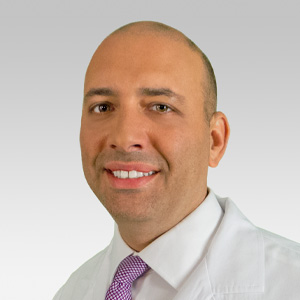10 Things You May Not Know About Heart Disease (Infographic)
Published February 2020
And Keys to Prevention
Heart disease, also called cardiovascular disease, coronary heart disease or coronary artery disease, refers to most conditions caused by atherosclerosis, or the buildup of plaque in the heart’s arteries. Most frequently, it takes the form of heart attack, stroke, arrhythmia or heart valve problems.
“When individuals think about heart disease, they often think about blockages in the arteries. But the reality is, it’s problems with muscle function, valve function, the lining of the heart and electrical system. It’s much broader than blockages, although that tends to be the most common presentation of heart disease,” says Northwestern Medicine Cardiologist Micah J. Eimer, MD.
Heart disease is also the leading cause of death in the United States and worldwide, although the healthcare community has had significant success in prevention and treatment: Over the last several decades, there has been a decline in the number of deaths due to heart disease or heart attack.
Heart Disease Prevention
Many risk factors are preventable. The first step in prevention is to know your family’s heart disease history. “It’s not the most comfortable conversation, but you want to have time on your side,” explains Dr. Eimer. “And when you find out what’s going on early, almost all these things are preventable if given time and proper treatment.”
High blood pressure, high LDL cholesterol and smoking are among the major risk factors for heart disease, and 47 percent of people in the U.S. have at least one of these three risk factors. Diabetes is also another major risk factor, and almost 7 in 10 people with diabetes over age 65 will die of some type of heart disease. There are ways to reduce these and other risks, like adopting a healthy diet and incorporating physical activity into your routine. The key is to find something you enjoy doing, like walking with friends.
When you find out what’s going on early, almost all these things are preventable.— Micah J. Eimer, MD
And while there are some symptoms associated with heart disease, not everyone experiences them. “The misconception is an individual feels fine, so they don’t think they have a problem,” explains Dr. Eimer. “People should be finding out if they have non-obstructive coronary disease. These are minor blockages that aren’t causing symptoms or detected by a stress test, but can lead to heart attack in the future.” Your primary care provider or cardiologist may use a blood test or recommend a coronary calcium scan to better determine your risk.
Discover other things about heart disease that can help you understand and manage your risk.
 Download 10 Things You May Not Know About Heart Disease (Infographic)
Download 10 Things You May Not Know About Heart Disease (Infographic)







